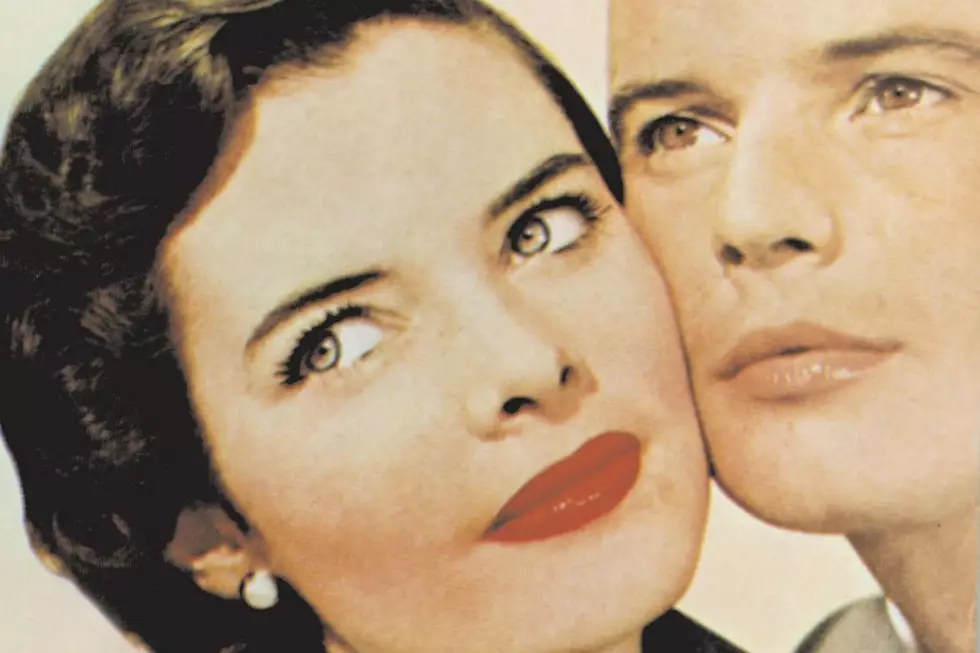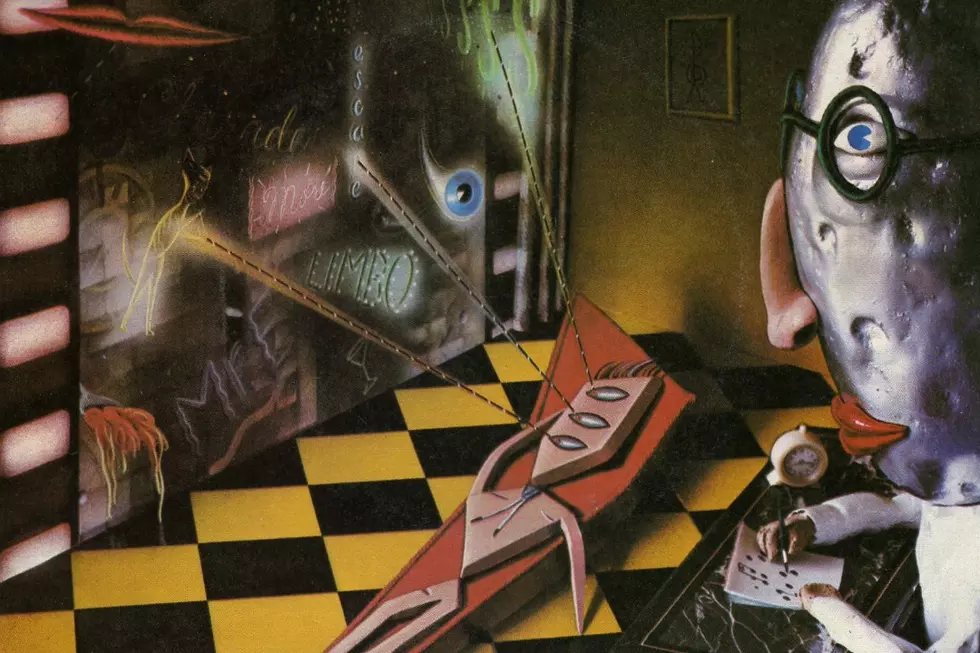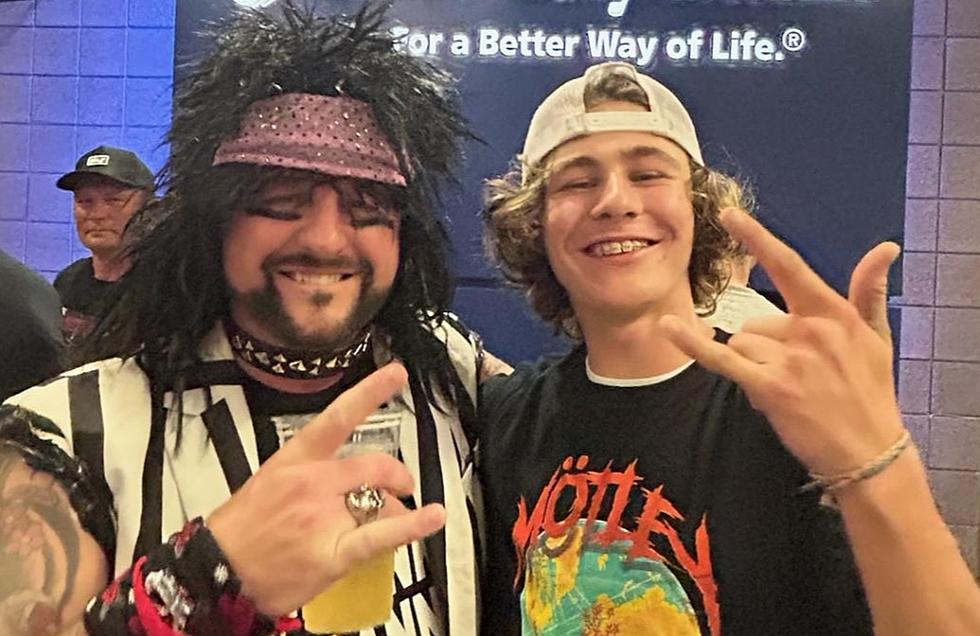
How ‘Love Stinks’ Gave the J. Geils Band an Overhaul
Poster boys for the late, lamented record business model of actually sticking with an act over the long haul, the J. Geils Band lingered on the Atlantic Records roster for seven years and nine mostly sales-deprived albums before being invited to find another label home. Fortunately for their new patrons at EMI, the group was just a couple of records away from full-fledged fame and fortune.
"For a long time, we didn't make money on our records," pointed out singer Peter Wolf. "We had to keep touring; it was the only way we could stay alive. We built up an audience for our live shows, and they kept us going when we didn't have hit records."
The band's first EMI release, 1978's Sanctuary, was their first to achieve gold status since 1973's Bloodshot. But it was their 11th LP, 1980's Love Stinks, that started their early '80s ascension in earnest. As with countless other acts of the era, all it took was adding some synths and a few stomping dance beats to their repertoire.
Not that the J. Geils Band's records had ever been less than danceable. Since arriving in record stores with their self-titled debut in 1970, they'd been one of rock's more reliable purveyors of R&B and soul-drenched party-ready rave-ups – it's just that, to their persistent commercial detriment, their sound really didn't have a home at Top 40 radio. That sad state of affairs would only get worse in the '80s; fortunately, the band was poised for a style overhaul.
When they returned with Love Stinks on Jan. 28, 1980, guitarist J. Geils and his titular crew sounded less like a seasoned party band and more like one of the polished, MTV-ready groups that would soon find themselves in incessant demand. Featuring eight originals and a cover of an old song ("Night Time") co-written by Blondie producer and Brill Building writer Richard Gottehrer, the album caught the band mid-metamorphosis between Stax-loving roughnecks and future video stars.
Watch the J. Geils Band Perform 'Love Stinks'
While the group's new sound may have been more commercially friendly, it added polish without sacrificing their essential personality. From the anachronistic cover to the bizarre, non sequitur-loaded "No Anchovies Please," Love Stinks had plenty of cockeyed humor to go along with its '80s gloss – and nowhere was this more apparent than the title track, which brushed the lower reaches of the Top 40 with its whining synth lead and singalong chorus.
The change in sound may have surprised longtime fans, but it definitely didn't hurt the band's profile; the Love Stinks LP peaked at No. 18, their best showing in years, and gave them another gold album in the bargain. As harmonica player Magic Dick later suggested, the group's stylistic shift may have had as much to do with looking for a hit as it did with simply learning how to cope with changing recording technology.
"A band's typical first album is stuff they've been playing on the road for some time, and it's very well rehearsed," he explained. "Two, three days at the most and you're done. Eventually, the kind of records we were making ... other bands as well ... it became a process, it was more like making movies, with layers of recording. A record would be fabricated, and that approach allowed pop music to develop in the way that it did. You had vast technical control over anything that you wanted to try with multi-track recording."
As Wolf later told The New York Times, he and keyboard player Seth Justman – who co-wrote much of the band's material – also couldn't help but be affected by the sound of younger acts coming up in the post-punk and New Wave scenes.
Watch the J. Geils Band Perform 'Come Back'
"With all that new energy in rock, a lot of the top bands began to seem embarrassing," Wolf said. "Here they were touring around the country in their sloppy T-shirts, making music that was prefabricated and comfortable, not having much to say that wasn't filler. It was really evident to the J. Geils Band at that point that we had to continue to grow, that if there was any music out there that could inspire us, we were going to have to search for it. Otherwise, being in the band would have been like going through the end of a love affair. People staring at each other blankly. Ceremony."
True to Wolf's word, the band continued to evolve with their next effort, 1981's Freeze-Frame, which continued to embrace the synth experiments that started with Love Stinks while broadening the group's sound in other directions, incorporating overtones of everything from rockabilly to World War II-era crooning.
The result was the J. Geils Band's first – and last – No. 1 album, a commercial triumph that sadly served as Wolf's final studio recording with the lineup before departing to pursue a solo career.
They'd eventually reunite for a series of sporadic tours starting in the late '90s (only to end up in court with Geils in a struggle over the rights to the band name years later), but before artistic disagreements tore them apart, the band's shared commitment to providing rock's finest house party brought them together – and their openness to new sounds helped them hit platinum at a pivotal point in their career.
"It's the college radio stations that are pumping out this incredible new energy. A lot of the records they're playing are fly-by-night productions, put out on a shoestring by somebody who believed in the music, spreading by word of mouth, but that's what rock 'n' roll was to start with," Wolf later argued. "That's the way it should be, too, especially with the economy in such a terrible state and the state of the arts at such a critical point. Like we sang in 'Sanctuary,' which was a few albums back, 'Times are tough and it's frustrating, we need relief.' And relief, for me, is rock 'n' roll."
The Top 100 Albums of the '80s
More From 96.5 The Walleye










